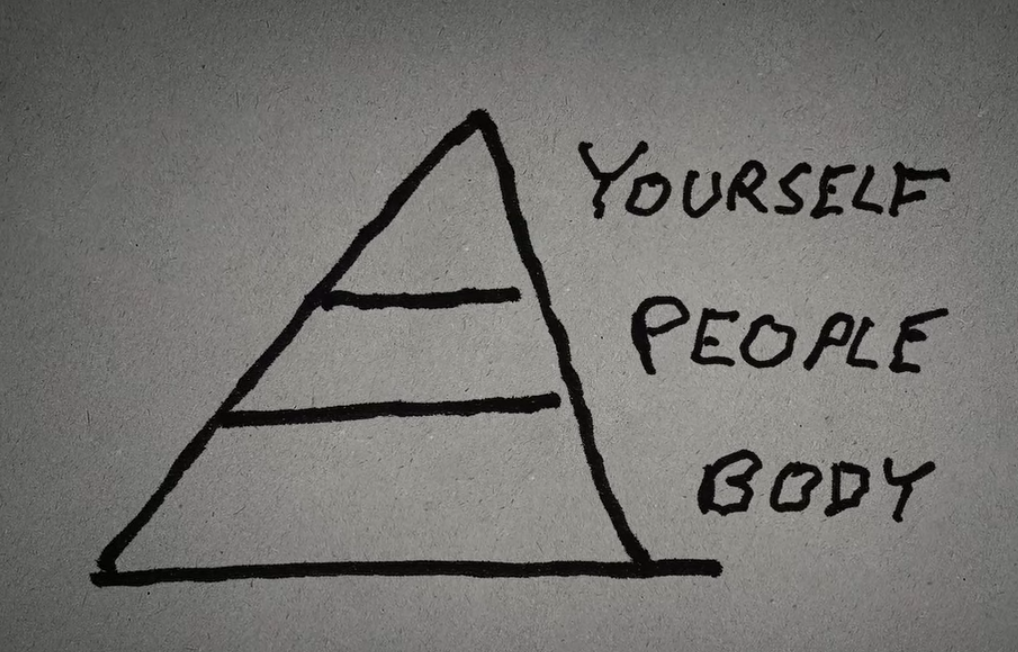Are you having a bad day? Or was it a bad 5 minutes that you milked all day?
I love this question. Because it’s so true! How often have we let something small ruin our entire day.
Of course there are terrible things we all experience that are difficult to cope with, like tragedy. But that not what we’re talking about here. I’m talking about the small stuff. The every day shit that is gnaws at you. It’s the argument you had this morning, the coffee you spilled on your clean white shirt, or getting cut off in traffic.
These are the moments that can make your blood boil, and stays with you much longer than it should. It becomes the 5 minutes you milk into hours. Why do we do that to ourselves?
Listen to the Podcast
A contributor to this phenomenon is our negativity basis. Whether we like it or not, our biology prioritizes negative information over positive. This means that even small setbacks or negative events can have a strong impact on our mood and overall well-being, while positive experiences may not have the same effect. This give us a mirage of disproportional bad stuff to the good simply because we notice it more.
Here’s the silver lining. We are not our thoughts. We can train our brains to think differently. But first, you need to be aware this is even happening.
One way to cultivate self-awareness when you are stewing, is ask yourself:
- “Will this matter in a day, a week, a month, or a year?” If the answer is no, then giving it some perspective may help you let it go and move on.
- Are my feelings and how much it’s taking up my mind or heart space proportionate to the situation? If you think you are getting overly upset or angry about something that is relatively minor, it may be a sign that they are focusing too much on the negative.
- Do you find yourself constantly thinking about past negative experiences or worrying about future ones?
Once you have awareness of your negative thoughts and emotions, you can begin to shift your mindset by incorporating a few practices to help you flip the negativity bias on it’s head.
1) Help Someone Who Needs It
It’s no secret that small acts of kindness and service not only help the recipient but also the giver. I can provide a sense of purpose and fulfillment that can boost our mental well-being. Yet, easier said than done when we’re not in the most giving of moods. The antidote? Prepare a list of ideas or a jar of small acts you could do for someone. When you feel your mind shifting and dwelling on stuff you want to let go of, go to your list of jar of ideas and pick one.
Some things I like to do:
- Help friends
- Buy a meal for someone who needs it
- Try and make it an amazing day for a random retail worker
- Send a love note to a person in your life – make their day
2) Get in nature extended period of time

Getting into nature has a calming effect on the mind. It’s scientific! You can increase it’s effectiveness, if you intentionally shift your focus from what occupies your mind to what’s around you. What do you notice? What do you hear, smell, see, taste? If you feel your mind wandering to what happened earlier, bring it back to the moment at hand.
Some of my favorite go-tos are:
- A hike in the woods. I like to explore new places and focus on different sights and smells as a way to cultivate presence
- Beach or water time. UC Davis research found looking, hearing, and being near water can lower your heart rate, blood pressure and increase feelings of relaxation.
- Can’t travel to do this? Just get outside at all – challenge yourself to notice new things….
3) Try a Mood Boosting Playlist
Listening to music can have a powerful effect on our mood, as it has the ability to evoke emotions and transport us to different times and places. Music can also release feel-good chemicals in our brain, such as dopamine, which can help reduce stress, lower blood pressure, and boost our immune system.
Some of my favorite go to tunes:
- Editing Flow – Alex Strohl
- My friend Mike always makes me great playlists
- Spotify search key terms

4) Move Your Body
Moving your body, through exercise or another physical activity, releases endorphins, which can help boost your mood and combat negative emotions. In addition, it can provide a sense of accomplishment and help you feel more energized and motivated, which can help you approach challenges with a more positive mindset.
For me it’s:
- Golf (solo or together + outside)
- Crossfit / HIIT type exercises
- Radical change in physiology – changing my environment.
5) Self Care & Relationships / Life force (see film STUTZ)
Self-care can help turn around a bad day by providing a way to relax and recharge. Taking care of yourself can help reduce stress and boost your mood, giving you a more positive outlook.
Remember – when we work on ourselves, it doesn’t improve our lives, but those around us too. It gives them space and permission to do the same.

Life Force | A three-leveled pyramid focusing on aspects of our lives that drive us forward.
In the film Stutz, life force is represented by a three-leveled pyramid focusing on the aspects of life that drive us forward. At the bottom level is our relationship with our physical body, which includes taking care of yourself and nourishing your health. The second level is about forming relationships with other people, creating strong connections and cultivating meaningful relationships. At the top of the pyramid is your relationship with yourself, which includes taking care of your mental and emotional health, understanding who you are and what makes you happy. When we take time to nurture these levels of life force in our lives, it can help us feel more energized and motivated, leading to a more positive outlook on life
If you’re lost, don’t try to figure it out. Let it go and work on your life force first. It’s about passion. Increasing your life force so you can find out what you’re really passionate about. But step one is to be passionate about connecting to your own life force, and anybody can do that.
Conclusion
Bad days happen to everyone, but they don’t have to ruin your day or your outlook on life. By recognizing that bad days are often just bad moments, we can intentionally deploy these 5 practices to help shift our mindset so the space they take up is proportional to the situation.
In turn you slowly start training your brain to focus less on the negative and you become resilient to the life’s twist and turns.
So the next time you’re having a bad day, remember these 5 techniques and give them a try.
Enjoy!



















